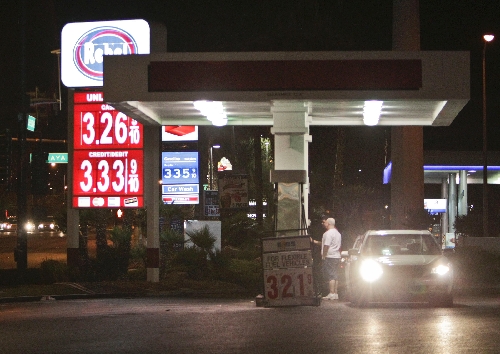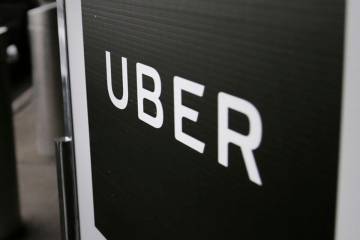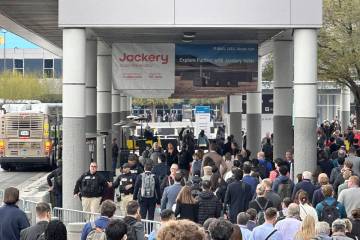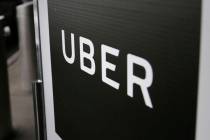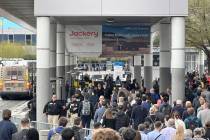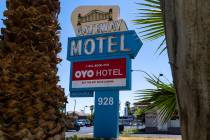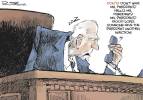Fuel costs take big bite of budget
It's been 30 years since gasoline took such a big bite out of the family budget.
When the gifts from Grandma are unloaded and holiday travel is over, the typical American household will have spent $4,155 filling up this year, a record. That is 8.4 percent of what the median family takes in, the highest share since 1981.
Gasoline averaged more than $3.50 a gallon this year, another unfortunate record.
The budget bite is especially noticeable in Las Vegas, with its higher-than-average fuel prices, its appetite for drive-in tourists and its spending-driven economy.
Start with that costlier gasoline. Nevada routinely ranks among the top 10 states for fuel prices. A gallon of regular unleaded cost $3.34 a gallon in Las Vegas on Tuesday, according to travel club AAA. That's 4.1 percent more than the $3.21 national average. So locals likely paid an even bigger share of income for gasoline in 2011 than the typical U.S. household, says Steve Brown, director of the Center for Business and Economic Research at the University of Nevada, Las Vegas and a former energy economist for the Federal Reserve Bank of Dallas.
And with statistics from the Las Vegas Convention and Visitors Authority showing nearly 60 percent of local tourists arriving via car, bus or recreational vehicle in 2010, record fuel costs could hurt fortunes along the city's resort corridor. Authority figures show that average daily auto traffic along major highways into Las Vegas fell year over year in seven of the prior 10 months, with traffic along Interstate 15 at the California border dropping year to year in four of the last 10 months.
Brown said it's tough to determine whether car traffic slumped because of high gasoline prices or still-struggling economies in major feeder markets such as Southern California and Phoenix.
Still, in the past, high gasoline prices in the United States have gone hand-in-hand with economic good times, making them less damaging to family finances. Now prices are high despite slow economic growth and weak demand.
That's because demand for crude oil is rising globally, especially in the developing nations of Asia and Latin America. But it puts the squeeze on the U.S., where unemployment is high and many people who have jobs aren't getting raises.
In 1981, when the economy was sliding into recession and oil prices were high because of Middle East turmoil, gasoline ate up 8.8 percent of the typical family budget, says Fred Rozell of the Oil Price Information Service.
Over the past decade, gasoline has taken up 5.7 percent of the family budget. If families had spent only 5.7 percent this year, they would have saved $1,300.
Besides leaving less money to eat out and go to the movies, high gasoline prices take a disproportionate toll on consumer confidence. People are more aware of small changes in gasoline prices because they drive past the signs all the time.
Brown said consumers grappling with rising fuel costs tend to skimp on home maintenance, cut back on clothing purchases and buy fewer Christmas presents -- all bad news for a town that has long relied on construction and discretionary spending for its economic nut.
James Hamilton, an economics professor at the University of California, San Diego, who studies energy prices, estimates that high gasoline prices reduced economic growth by about 0.5 percent for the year -- a substantial hit for an economy only growing at an annual rate of about 2 percent.
That slower growth filters down to Las Vegas, because the city's tourism sector needs an expanding national economy to bolster visitation.
Relief from high gasoline prices is nowhere in sight, though. Ed Morse, head of commodities research at Citibank, expects oil to average $100 per barrel next year, which would eclipse 2011's average of about $95 per barrel.
The Associated Press contributed to this report.



